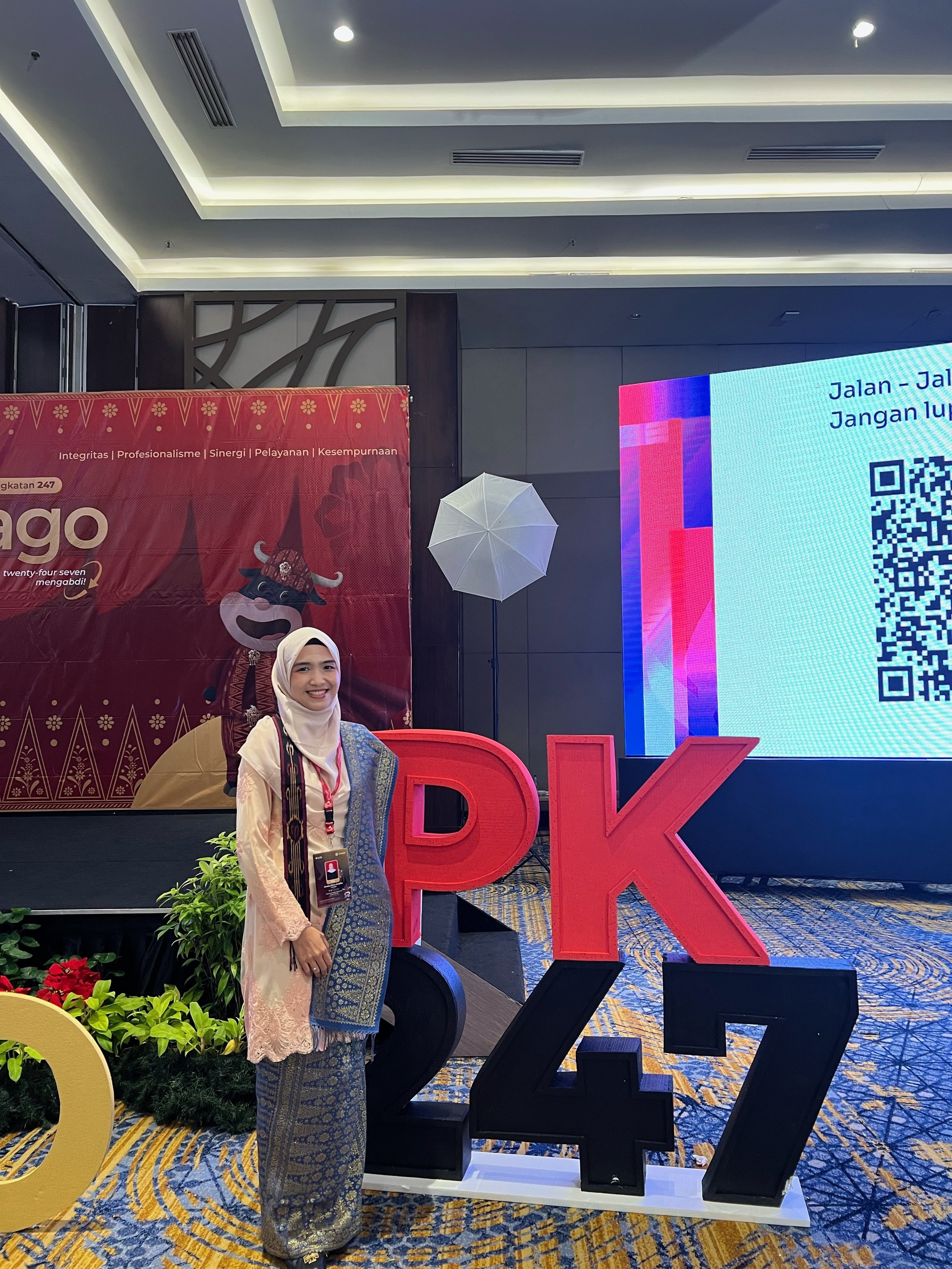Annisa Dina Amalia
This month we are featuring Annisa Dina Amalia, Icha, from the University of Melbourne.
From now on, we will only be featuring paid-up / subscribed members of IC so if you want to be featured, please sign up as a member 😊
Tell us about yourself!
I’m Indonesian and currently pursuing my PhD at the University of Melbourne. I was born and raised in Pontianak, West Kalimantan, before merantau—leaving home—for study opportunities in other cities and countries. Before moving to Australia, I work as a lecturer in Universitas Tanjungpura in my hometown.
Where does your interest in Indonesia stem from?
Having been born and raised in Indonesia, it feels natural for me to develop a deep interest and passion for my home country. My academic background in International Relations exposed me to various global contexts, but I’ve chosen to anchor my research in Indonesia—precisely because of its complexity and the many challenges it continues to face.
What is the nature of your engagement with Indonesia – are you an academic, a professional, an alumni?
I’m an Indonesian academic currently pursuing further studies in Australia. My research focuses on the political activism of Indonesian migrants in Australia, which reflects both my academic and personal connection to Indonesia.
Have you ever been to an Indonesia Council Open Conference and if so, what is your fondest memory?
Yes, I attended my first ICOC earlier this year at the University of Melbourne, just as I began my PhD journey. It was an inspiring experience to meet so many non-Indonesians who share a genuine interest in Indonesia.
How do you think organisations like Indonesia Council can improve Australia-Indonesia relations?
Organisations like the Indonesia Council play a crucial role in fostering deeper understanding between Indonesia and Australia. Despite their geographical proximity, the relationship between the two countries has often been marked by ambivalence. I've also heard that some Australian schools have discontinued Bahasa Indonesia programs due to low student interest and a shortage of qualified teachers, such a concerning trend! I hope the Council continues to provide a platform for like-minded individuals to connect, exchange ideas, and work collaboratively toward strengthening people-to-people ties.
What are some of the challenges and opportunities in the Indonesia-Australia relationship?
Although Indonesia and Australia share many similarities—geographic proximity, regional interests, and growing economic and educational ties—these are often overshadowed by perceived differences. I’ve observed that many Indonesians tend to view Australia primarily as a holiday destination, without much curiosity about its culture, society, or politics. This lingering perception gap remains a key challenge in the bilateral relationship. At the same time, I see meaningful opportunities—particularly through youth-led initiatives—to strengthen connections between the two countries. Cultural exchanges, language learning programs, and collaborative research projects can foster mutual understanding and engagement.
Tell us about your favourite Indonesian food experience
As a child, I was an incredibly picky eater and hesitant to try new foods. But during my time studying in Depok, I had a Javanese roommate who once cooked sambal terong (spicy eggplant). I was curious and gave it a try—and loved it! Since then, it’s become a comfort food, and I always crave it whenever I see it on a menu.
What’s your favourite Indonesian food and why?
It’s hard to pick just one, but being far from home has made me especially miss rujak—a mix of tropical fruits served with sweet and spicy peanut sauce. It’s refreshing, flavourful, and absolutely perfect for hot summer days!
What’s your favourite Indonesian music/song/writer?
I grew up surrounded by Indonesian music and literature, but Andrea Hirata’s novels played a special role in my teenage years. My father had a complete collection of his books, and I remember being deeply inspired by them—especially his depictions of the Malay community, which closely resembles my own. His stories not only moved me but also motivated me to pursue education abroad.
What’s your favourite Indonesian idiom?
I really love the saying “Di mana bumi dipijak, di situ langit dijunjung." (wherever you live, you must observe the local custom). It’s a powerful reminder to remain humble and respectful of local customs and cultures wherever we go.
[Last month’s PAY IT FORWARD question]: What’s the most interesting toilet/bathroom/restroom experience you’ve had?
I’m not sure if it qualifies as “interesting,” but in Indonesia, it was always a challenge to find toilets suitable for young children. I often had to carry a portable toilet seat for my toddler. Now that I’m in Australia, it’s such a relief to have easy access to family restrooms with child-sized facilities—it’s a small thing, but it makes a big difference for parents!
And don’t forget to suggest a pay it forward question for next month 😊 :
Who is your favourite Indonesian president and why?

